
As an experienced laptop enthusiast and someone who has spent countless hours researching the best laptops for various professions, I understand the unique requirements lawyers have when searching for the perfect device. Whether you're drafting contracts, reviewing case files, or conducting legal research, it's essential to find the best laptop for lawyers that can keep up with the demands of your practice. In this guide, I'll share my insights from my extensive laptop spreadsheet analysis and comparison of recent releases, professional and user-generated reviews, and topic-specific requirements to help you make an informed decision.
For lawyers, the ideal laptop should offer a balance of performance, portability, and battery life. A high-quality display, comfortable keyboard, and reliable security features are equally important, as you'll likely spend hours on end reviewing documents and handling sensitive client information. Additionally, having a laptop that can seamlessly integrate with various software programs, such as Microsoft Office, legal research tools, and case management systems, is crucial to ensure you maintain a productive and organized workflow.
As a professional in the field of law, you're likely no stranger to the importance of staying up-to-date with technological advancements. In this guide, I'll focus on the top laptops that cater specifically to the needs and preferences of lawyers, taking into account factors such as build quality, connectivity options, and the ability to multitask efficiently. Stay tuned as we delve into the world of laptops and discover the best laptop for lawyers that will help you excel in your legal career.
Processing Power: Finding the Right CPU for Your Law Practice
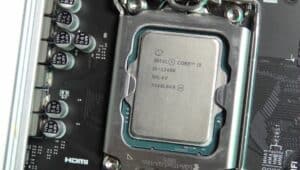
As a lawyer, you may be wondering what processor to choose for your laptop. With so many options on the market, it can be overwhelming to decide. In this guide, I'll go over what you need to know to make an informed decision.
The state of the processor market
Apple's ARM-based M1, M2, M2 Pro, and M2 Max processors have taken the laptop market by storm with exceptional single-core performance and battery life. AMD has also captured 20% of the laptop CPU market with their Ryzen processors, and Intel's 12th-generation Core CPUs can provide a lot of value for those not needing cutting-edge performance.
Why a fast CPU is not required for legal practice
For legal practice, a top-of-the-line processor is not necessary if you're working with a cloud-based document management system like Dropbox or OneDrive. Even if you're working with more resource-intensive applications like Excel or PowerPoint, a mid-range processor should suffice.
Why I'm no longer interested in single-core performance (and why it's still relevant)
While single-core performance used to be the main focus when looking for a laptop processor, it's no longer the be-all and end-all. With the rise of multi-core processing, having more cores and threads can make a significant difference in performance. However, single-core performance is still relevant for certain tasks like web browsing and opening apps.
What to expect in each price bracket?
If you're on a budget, an i3-1115G4 should suffice for basic tasks like web browsing and document editing. For better overall performance, go for an i5-1135G7. If you need more power for demanding tasks, an i7-11370H will give you the best performance.
In summary, while MacBooks are a popular option for lawyers, they're not the only option. A top-of-the-line processor isn't necessary for legal practice, but a mid-range processor is recommended. Look for a processor with more cores and threads if you need to run resource-intensive applications. And, if you're on a budget, an i3-1115G4 is a good starting point.
Winning the case with the right graphics card
As a lawyer, you might not need a dedicated graphics card for your day-to-day tasks. However, if you're dealing with visual content or working with 3D models or video editing, a dedicated GPU can make your life easier.
When it comes to choosing between Nvidia and AMD, I would recommend going with Nvidia, as they're the clear leader in the laptop GPU market. However, there is a wide variance in graphics performance even in laptops with the same GPU chipset due to the discontinuation of Nvidia's Max-Q label. It's essential to pay attention to the wattage determined by the laptop manufacturer (OEM) to ensure you get the desired performance.
If you're looking for more real-world tests, search for video encoding or gaming benchmarks. I use 3DMark to compare laptop graphics performance because it's an industry-standard benchmark that measures the entire graphics pipeline, including the GPU, CPU, and memory.
At each price level, you can expect different levels of GPU performance. If you're on a budget, don't expect a high-end GPU in a gaming laptop under $KEY_POINTS,000. Instead, look for an entry-level GPU from Nvidia's latest generation of chips, such as RTX.
Here are my laptop GPU recommendations for lawyers in each price bracket:
- Minimum: GeForce GTX 1650
- Recommended: GeForce RTX 3050
- High-end: GeForce RTX 2060
Remember to choose a laptop with a dedicated graphics card only if you need it. It's also essential to choose a laptop with the right GPU that fits your budget and requirements.
Memory Matters: How Much RAM Does a Lawyer Need in a Laptop?
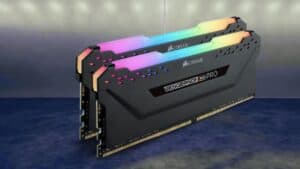
RAM is a crucial component for your laptop, especially if you're using it for law school or work. In the past few years, most mid-range laptops come with 16 GB of RAM, and high-end laptops can have 32 GB or more. The latest-gen Intel and AMD CPUs support DDR4 and DDR5, but DDR5 is still quite expensive and needs time to mature as a technology.
When it comes to law office applications, the RAM requirements vary. For general tasks such as document editing, web browsing, and email, 8 GB is sufficient. However, if you're working with more resource-intensive applications such as virtual machines or large data sets, you'll need more RAM. In this case, I recommend getting 16 GB or more.
While there are some exceptions, most laptops come with DDR4 memory, which is the latest standard. DDR5 is still in its early stages and is currently quite expensive. It's also important to note that the performance difference between DDR4 and DDR5 is not significant in real-world applications.
When choosing RAM, there are other considerations such as ECC, CL, frequency, and so on. However, these factors are not as important for most users, and the difference in performance is often negligible.
At each price point, you can expect different amounts of RAM. For budget laptops, 8 GB is common, while mid-range laptops often come with 16 GB. High-end laptops can have 32 GB or more. If you're looking for a workhorse machine that will last you through law school and beyond, I recommend getting as much RAM as possible (32 GB if possible).
To summarize, if you're on a budget, 8 GB is fine for general tasks. However, if you're using resource-intensive applications, I recommend getting 16 GB or more. DDR4 is currently the latest standard, and DDR5 is not yet necessary for most users. Finally, if you're looking for a laptop that will last you through law school and beyond, get as much RAM as possible (32 GB if possible).
Lawyers' Laptop Buying: Top FAQs Answered
Q: What laptop is best for lawyers?
The ASUS Zenbook is the best affordable option for lawyers, while the Lenovo Legion 5 Pro, GIGABYTE AORUS 15 XE4, and ASUS ROG Strix Scar are the best premium options.
What specs should a laptop have for a lawyer?
For a minimum, a laptop should have an i3-1115G4 processor, GeForce GTX 1650 graphics, and 8 GB of memory. For medium, an i5-1135G7 processor, GeForce RTX 3050 graphics, and 16 GB of memory. For maximum, an i7-11370H processor, GeForce RTX 2060 graphics, and 32 GB of memory.
What is the most important feature in a laptop for lawyers?
The most important feature in a laptop for lawyers is portability, followed by battery life and durability.
What is the best laptop for law students?
The ASUS Zenbook is a great choice for law students who need a lightweight and affordable laptop that can handle basic tasks like document editing and web browsing.
What is the best laptop for legal professionals?
The Lenovo Legion 5 Pro and ASUS ROG Strix Scar are the best laptops for legal professionals who require powerful hardware for more demanding applications like virtual meetings and video editing.
Can I use a MacBook for law school?
Yes, you can use a MacBook for law school. However, you may have some compatibility issues with certain legal software that runs exclusively on Windows.
Is a touchscreen laptop useful for lawyers?
While a touchscreen is not necessary for lawyers, it can be helpful for annotating documents, taking notes, and presenting in court.
What software do lawyers use that requires a powerful laptop?
Legal professionals may use resource-intensive software like virtual meeting applications, video editing software, and document management systems that require a powerful laptop with high-end graphics and memory.
How to choose a laptop for a law firm?
A law firm should choose a laptop that meets the needs of its staff, such as portability, durability, and compatibility with legal software. It is also important to consider the budget and invest in quality hardware that can handle demanding tasks.
Is it necessary to spend a lot of money on a laptop for a lawyer?
It is not necessary to spend a lot of money on a laptop for a lawyer. However, investing in a quality laptop with sufficient hardware can improve productivity and efficiency, which can ultimately lead to better outcomes and increased revenue for a law firm.
4 Best Laptops for lawyers
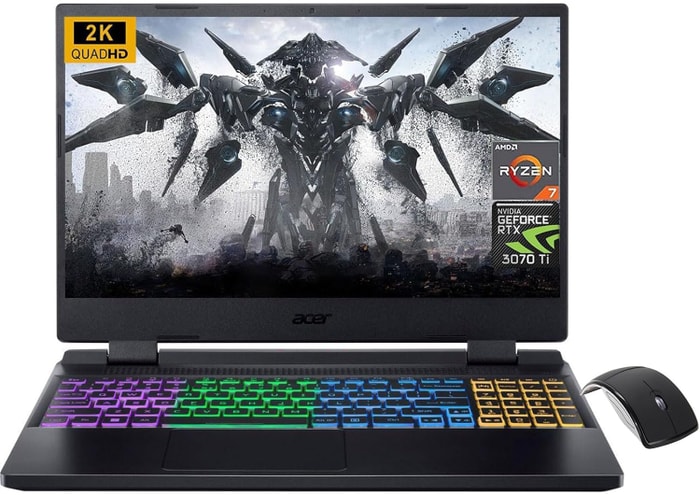 $680
$6801.acer Nitro 5
lawyers laptop- First-class processor (Ryzen 7 6800H)
- Splendid graphics card (RTX 3070 Ti)
- Superb display (15.6)
- Terrific memory amount (32GB)
- No IPS Panel (worse viewing angles)
Alternatives
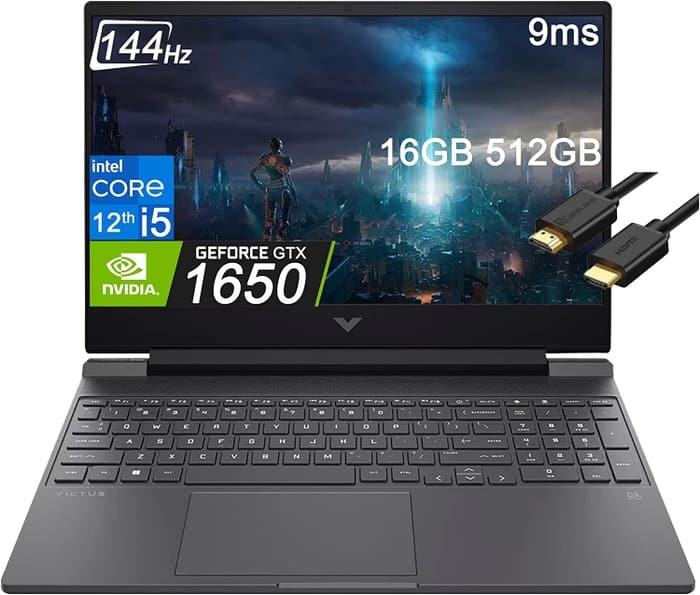
HP Victus 15t
- Low price
- Strong entry-level gaming performance
- Weak GPU yields unsatisfactory frame rates
- Display and webcam could be better

2.ASUS TUF Dash F15
ASUS TUF Dash F15: A balanced performer with a competitive price.- Lightweight and well built
- Good inputs and IO
- Multiple screen options, including FHD 300Hz and QHD
- More powerful than the previous generation
- Some quirks affecting everyday ergonomics
- Most ports squeezed together on the left edge
- Caution advised with the FHD 144Hz screen option
Summary
The ASUS TUF Dash F15 is a lightweight and well-built laptop that offers good performance at a competitive price. With its powerful hardware and various screen options, it's a solid choice for those on a lower budget, although caution is advised when it comes to the FHD 144Hz screen option.
Reviews
Alternatives

Lenovo Legion 5i Pro 16
- Stylish, sleek form factor
- Gorgeous display
- Webcam quality is poor
- No biometrics
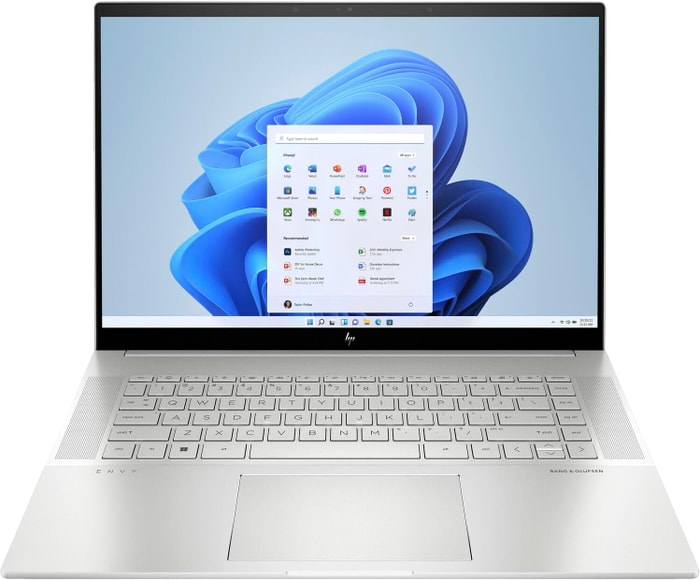 $1,800
$1,8003.HP Envy 16
HP Envy 16: A hefty but tempting desktop replacement for creative apps and light gaming.- Plenty of CPU and GPU power
- New 120Hz screen refresh rate
- High-res webcam
- Sleek design
- Merely adequate base screen
- Optional OLED has fewer pixels than before
- Bulky and heavy
Summary
The HP Envy 16 offers high-end features like a world-class webcam and a 120Hz refresh display, making it a great choice for creative apps and light gaming. It has plenty of CPU and GPU power, a sleek design, but it is bulky and heavy.
Reviews
Alternatives

ASUS ROG Strix G15
- High-performance CPU and GPU
- Good workmanship and stable construction
- Skimpy connectivity
- Coil whine in certain situations

4.Lenovo Legion Pro 7i 16
Lenovo Legion Pro 7i 16: Sleek and Powerful Gaming Laptop at a Fair Price- Strong overall performance
- Big, bright, and fast display
- Per-key RGB lighting
- Some flex to keyboard deck
- Poor battery life
Summary
The Lenovo Legion Pro 7i 16 is a stylish gaming laptop that delivers impressive performance with its i9-13900HX processor and RTX 4090 graphics card. It offers great value for its price, making it an enticing option for long-term investment. However, it does have some drawbacks such as keyboard flex and poor battery life.
Alternatives

HP Omen 17
- QHD display with 165 Hz
- Expandable working memory
- Slightly below-average performance for a RTX 4080
- High noise level
Table of the Best Laptops for lawyers
| Laptop | Price (approx) |
| acer Nitro 5 | $680 |
| ASUS TUF Dash F15 | $1,160 |
| HP Envy 16 | $1,800 |
| Lenovo Legion Pro 7i 16 | $3,390 |





